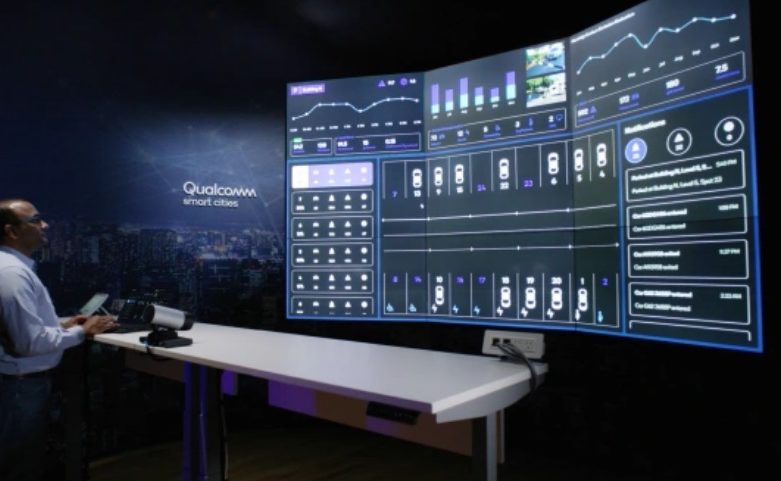In San Diego, the telecom giant Qualcomm has turned its sprawling campus into a showcase of the smart city of the future.
With 36 buildings, 25,000 employees, and hundreds of acres of land, the San Diego campus of telecommunications giant Qualcomm is almost a city in itself. That made it the perfect testing ground for a suite of new technologies aimed at making spaces and cities smarter. Over the past year, the company has been rolling out new technologies to its buildings, infrastructure, transportation, and security systems that offer a glimpse of how a tech-enabled smart city could operate.
Now the campus has a range of systems in place that use sensors and analytics to optimize everything from energy use to parking. There are camera systems that use artificial intelligence to improve campus and building access and enhance security, systems that tap into sensors in HVAC systems to manage energy consumption, light poles that double as internet hot spots, and algorithms that deploy the company shuttle system based on real-time demand.
The smart city these efforts are aiming toward could be a highly optimized urban ecosystem, with sensors funneling real-time information on city functions and how people move around to a central control system that can autonomously adjust things such as traffic signals, stormwater systems, electricity rates, and emergency alerts. This is the ideal version of the concept, but it could also lead to a privacy nightmare, equipped with unchecked surveillance systems that exert an opaque control over everything from internet access to algorithmic patterns of police enforcement.
The campus has been outfitted with more than 20 different systems developed through Qualcomm’s Smart Cities Accelerator Program, which connects cities with affiliated technology providers that can offer individual solutions depending on its needs. The technologies implemented on the campus include trash cans that can notify janitorial staff when they need to be emptied, security gates that use automated license-plate readers to open for employees, and parking garages with AI cameras that help drivers go directly to empty parking spaces without wasting time and gas.
Now Qualcomm is negotiating with several US cities to introduce similar innovations. The systems cities are most interested in are more specialized and disparate, including fleet-management technology to better track when city-owned vehicles need preventative maintenance, smart lights that serve as internet hot spots in low-income neighborhoods, and systems to better understand when trash receptacles are full.
Source: www.fastcompany.com


